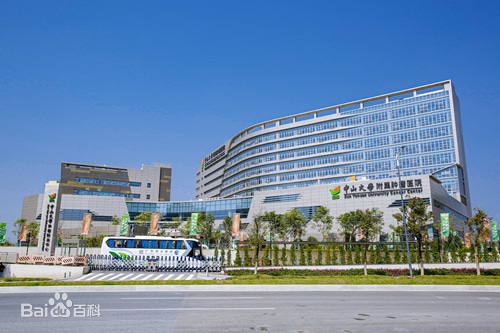Warning: Trying to access array offset on value of type bool in /www/wwwroot/www.medtourcn.com/wp-content/themes/medical-directory/framework/theme/medicaldirectory-image.php on line 78
Warning: Trying to access array offset on value of type bool in /www/wwwroot/www.medtourcn.com/wp-content/themes/medical-directory/framework/theme/medicaldirectory-image.php on line 79

Recently, Professor Huang Huiqiang’s team at Sun Yat-sen University Affiliated Cancer Hospital achieved significant progress in a lymphoma patient who relapsed after five lines of chemotherapy. Utilizing CAR-T therapy, the patient has experienced complete remission for over two years, making them one of the patients in China with the longest survival post-CAR-T treatment.

Lymphoma, one of the common blood cancers, has traditionally been treated using a combination of chemotherapy, autologous hematopoietic stem cell transplantation, targeted therapies, and immune-modulating drugs. However, CAR-T cell therapy, an advanced technology in the field of oncology, has emerged as a precise, rapid, and highly effective new treatment method in recent years.
Diffuse large B-cell lymphoma is a prevalent aggressive lymphoma characterized by rapid progression, high mortality rates, and short survival periods. Despite significant therapeutic advancements in recent years, approximately 70% of patients achieve good outcomes and long-term remission through first-line treatments, but around 30% of patients have inadequate responses to treatment, facing difficult-to-cure relapses.

Professor Huang Huiqiang emphasized, “CAR-T cell therapy plays a crucial role in providing new treatment hopes for relapsed and refractory patients who cannot undergo transplantation or have previously undergone ineffective treatments.
It is reported that in the future, Sun Yat-sen University Cancer Center will continue to explore clinical innovative technologies in CAR-T cell therapy, aiming to bring new prospects for numerous patients.
#CARTBreakthrough #CancerResearch #SunYatSenCancerCenter #InnovativeTherapies #MedicalBreakthrough #LymphomaTreatment #PrecisionMedicine #HopeForPatients #CancerSurvivorship #AdvancedOncology #MedicalInnovation #ResearchProgress #ScienceNews #HealthcareAdvancements #ImmunotherapySuccess #Cancer
The new hope for pediatric patients with relapsed/refractory B-cell acute lymphoblastic leukemia (R/R B-ALL) boasts an overall survival rate of up to 96%.
Recently, CAR-T cell therapy targeting B-cell malignancies has encountered a series of inquiries and challenges, particularly concerning discussions on CAR-T cell-related toxicity, resistance, antigen escape, and limitations in persistence. However, a groundbreaking concept addressing relapse in patients after CAR-T cell therapy has been introduced for the first time: a sequential approach involving distinct targeted CAR-T cell therapies.
Within this approach, CD19 CAR-T cell therapy has demonstrated the ability to achieve complete remission in 60% to 90% of relapsed or refractory acute B-cell lymphoblastic leukemia patients. By experimenting with different combinations and sequential administration strategies of B-cell antigen-targeted CAR-T cell therapies, there’s potential to prevent tumor antigen escape and prolong the persistence of CAR-T cells.
Preliminary clinical trials have provided initial support for this concept, notably a phase II clinical trial aimed at assessing the efficacy of sequential CD19 and CD22 CAR-T cell therapy. Its findings revealed a 79% event-free survival rate, an 80% sustained remission rate, and an impressive 96% overall survival rate among patients receiving targeted doses in sequential therapy. Encouragingly, the overall safety of this sequential therapy appeared manageable, providing long-term survival benefits for children with relapsed or refractory acute B-cell lymphoblastic leukemia.
However, the limitations of antigen escape and limited persistence after CAR-T cell therapy persist. Addressing these challenges, researchers have proposed the hypothesis of sequential administration of CAR-T cell products targeting different antigens, aiming to maintain the persistence of CAR-T cells.
The results of this phase II clinical trial indicate that administering CD22 CAR-T cell therapy following CD19 CAR-T cell infusion can result in longer-lasting remission effects for pediatric patients with relapsed or refractory B-cell acute lymphoblastic leukemia, achieving an 80% sustained remission rate over 18 months and an impressive 96% overall survival rate. Importantly, the overall safety of this sequential therapy is uplifting, providing long-term survival benefits for this specific patient population.
In summary, this study presents groundbreaking evidence for new strategies and directions in CAR-T cell therapy. Despite existing limitations, this therapy demonstrates significant potential in treating uncontrollable acute B-cell lymphoblastic leukemia, potentially offering more enduring treatment effects and long-term survival benefits for these patients. This achievement points towards a viable path for the future development of cell therapies.
This Phase 2 trial, conducted at Beijing GoBroad Boren Hospital in China, enrolled pediatric patients aged 1–18 years diagnosed with relapsed or refractory B-cell acute lymphocytic leukaemia (ALL) showing CD19 and CD22 positivity exceeding 95%.






